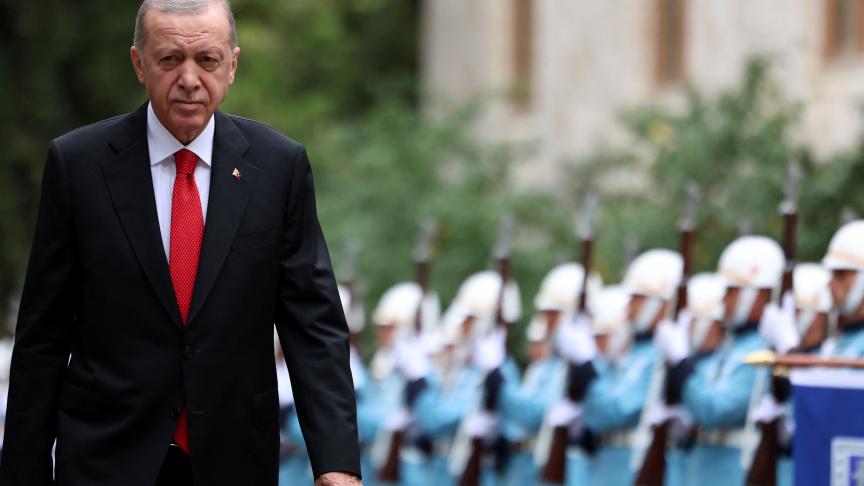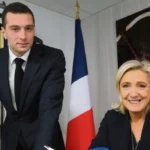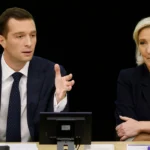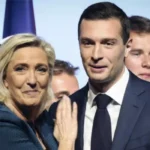Turkish President Recepp Tayyip Erdogan on Sunday warned “terrorists” and the European Union, which has kept him “waiting for 40 years”, a few hours after an unclaimed suicide attack which left two people injured in the heart of the capital, Ankara.
“Turkey no longer expects anything from the European Union, which has kept us waiting at its door for 40 years,” said the head of state before the inaugural session of Parliament.
On the other hand, he made no mention of Sweden’s accession process to NATO, which MPs are supposed to validate during this legislature.
“We have kept all the promises we made to the EU but they have kept almost none of theirs” he denounced, adding that he will not “tolerate new demands or conditions to the process accession” of Turkey.
“If they intend to end the accession process which only exists on paper, that’s their decision.”
The president’s anger stems from a recent ruling by the European Court of Human Rights which this week found Turkey guilty of convicting a man of terrorism, based solely on his use of the encrypted messaging application ByLock .
Mr. Erdogan was speaking a few hours after a suicide attack targeting police headquarters and the Interior Ministry, during which the two attackers were killed.
“The villains who threaten the peace and security of citizens have not achieved their objectives and will never achieve them,” he insisted.
High power explosion
Two police officers were injured, but their lives are not in danger, according to the Minister of the Interior, Ali Yerlikaya, who told the press that one of the two attackers blew himself up and the other was shot “in the head”.
The targeted police headquarters, located in the same interior ministry compound, is close to parliament.
The high-power explosion was heard several kilometers away: a video recorded by a surveillance camera shows a gray vehicle slowly parking in front of the police headquarters. The front passenger gets out and walks forward, gun in hand, shoots and blows himself up in front of the police officer’s booth on duty.
A second man rushes in turn but disappears from the image before being killed by the police.
Mr. Yerlikaya called on the press to stop broadcasting images of the attack on social networks.
For its part, the Ankara general prosecutor’s office announced the opening of an investigation. He also banned all Turkish media, in particular televisions, from stopping broadcasting images from the scene of the attack.
The parliament which begins its session is, among other things, called upon to validate Sweden’s entry into the Atlantic Alliance.
Ambiguous position
Since May 2022, Turkey has been dragging its feet to confirm the entry of this Scandinavian country by arguing for its clemency towards “terrorists” and Kurdish movements.
Mr. Erdogan maintains an ambiguous position by arguing that Parliament is sovereign and that only it can decide, or not, to lift this veto.
Swedish Prime Minister Ulf Kristersson quickly assured in a statement that his country “once again confirms its commitment to long-term cooperation with Turkey in the fight against terrorism.”
Many foreign officials also gave their support to Turkey, expressing their “solidarity” and condemning the attack, starting with the European Union: Charles Michel, President of the European Council, said he was “shocked”. Germany, the United Kingdom, France and Saudi Arabia, as well as the United States embassy in Ankara, also condemned the attack.
Ankara was the scene of numerous and violent attacks during the years 2015-2016 claimed by the Kurdish separatists of the PKK, the Kurdistan Workers’ Party or by the Islamic State group.
During the most recent one, in March 2016, a car bomb in the central district of Kizilay left 38 dead and 125 injured. The attack was attributed to TAK, a small radical group close to the PKK.
In October 2015, an attack in front of Ankara central station attributed to ISIS left 109 people dead.
The last attack recorded on Turkish territory on November 13, 2022, in a shopping street in Istanbul (six dead, 81 injured), was not claimed but was attributed to the PKK by the authorities.
This article is originally published on .lesoir.be







